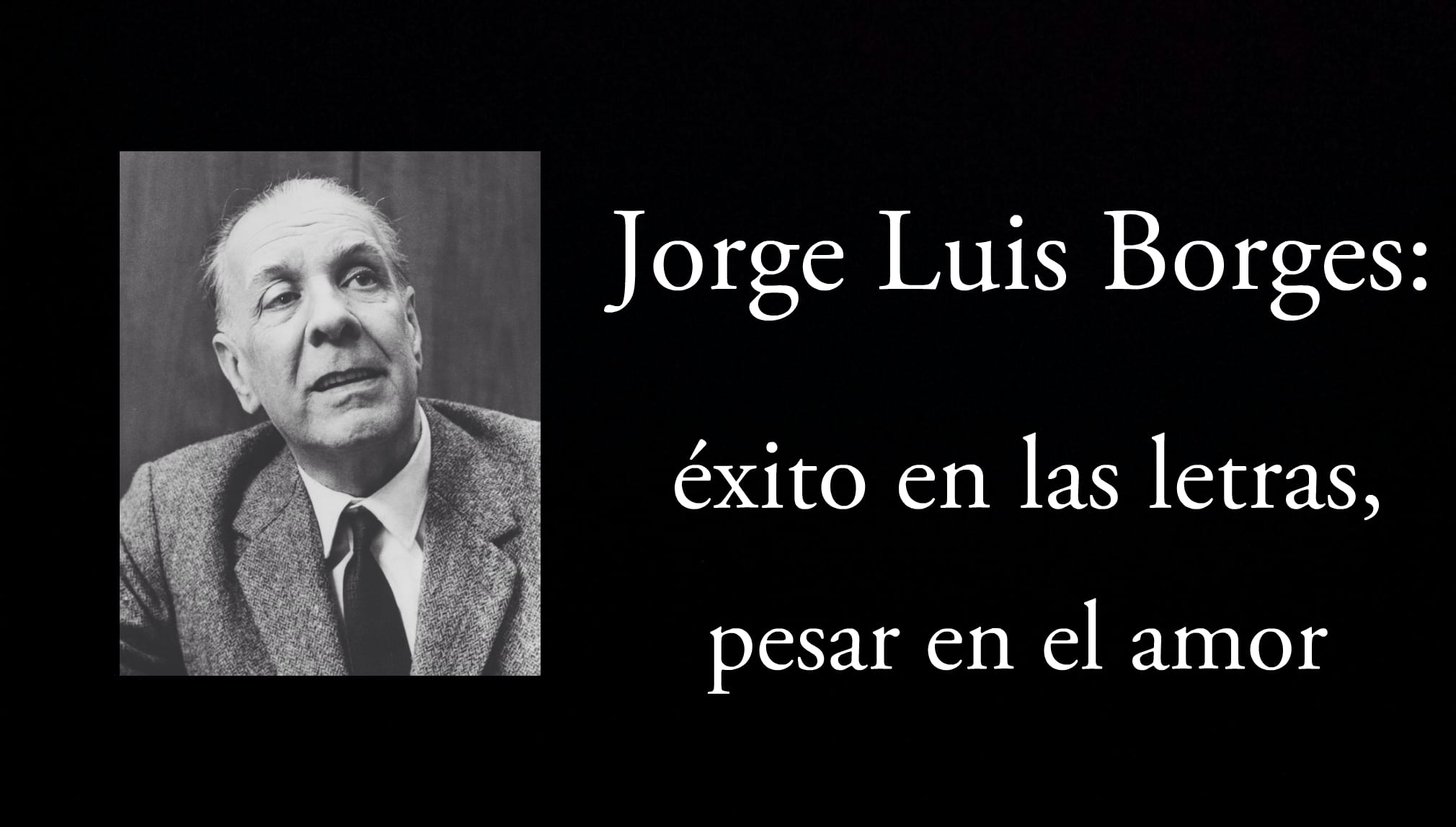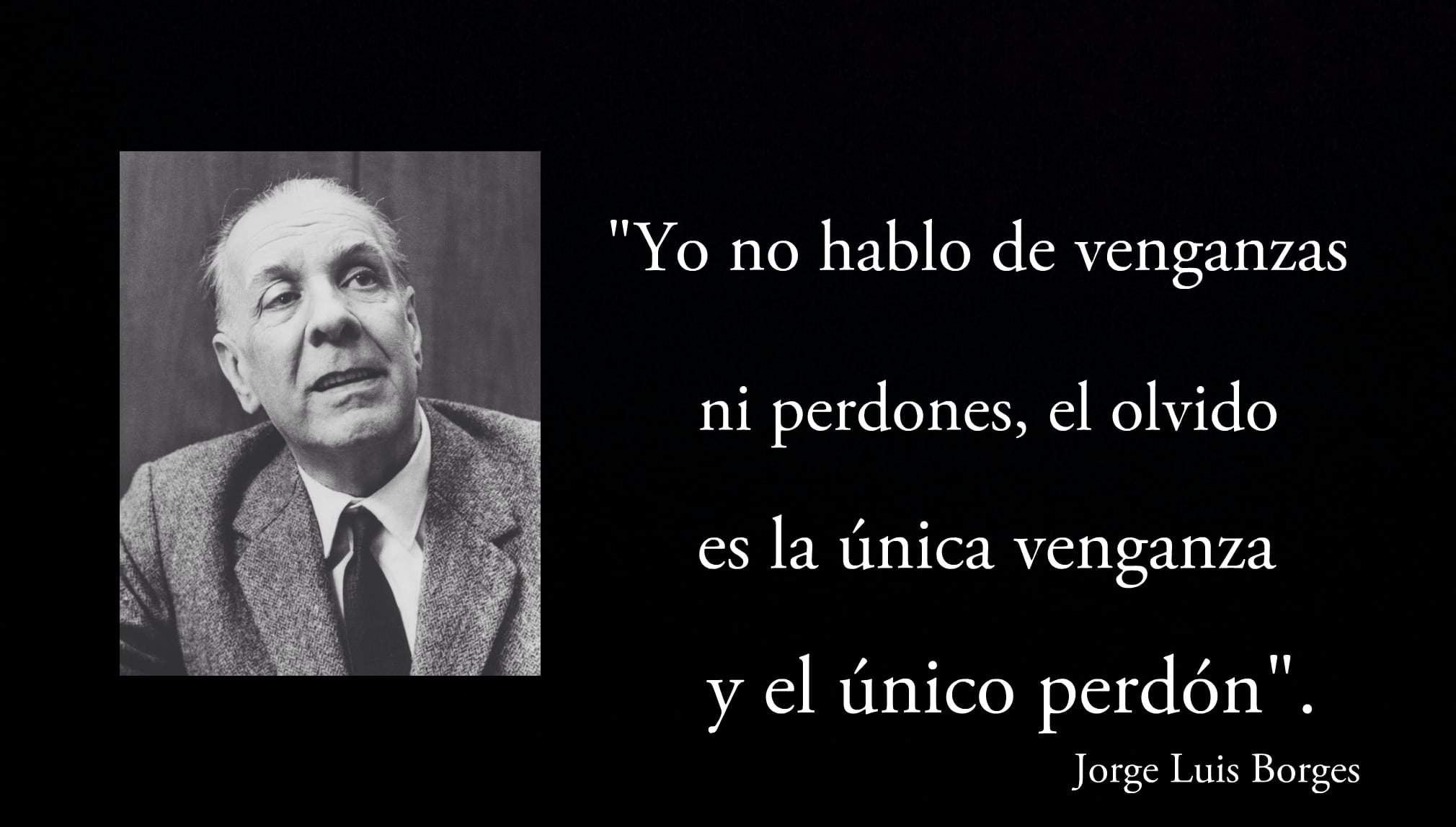
Jorge Luis Borges, success in letters, regret in love.
Argentina had in Jorge Luis Borges an irrepressible flow of letters, a source of wisdom that only death could close so that no more drops would sprout. However, despite suffering what awaits each passerby in this finitude that we call life, the waters that flowed from this giant continue to feed the imagination and soul of many.
A storyteller? Yes; A detractor of the novels? A philosopher ?, of course; A poet ?, like few. Jorge Luis Borges came to the lyrics so that they would never be the same. However, what do we really know about the love life of this learned scholar? What do his works tell us about it? What do his biographers say? There are very interesting aspects that stand out, and that will be brought to the fore today.
Jorge Luis Borges: success in letters
Who has not read or heard of The Aleph o Fictions? It is rare to find a regular reader who has not. These works, being just an iota of what we can call "the Borgean flow" are an unequivocal example of his mastery of the language in its various dimensions. Reading Borges catches the act, dazzles, intrigues.
Language scholars deduced with a few stories the literary qualities of the Argentine writer. Not in vain the rain of recognitions that it had: a Jerusalem Prize in 1971, a Special Edgar Prize in 1976, a Miguel de Cervantes Prize in 1980, and stop counting. Yes, the success of Jorge Luis Borges in the lyrics was evident.
Jorge Luis Borges: regret in love
Now, what is said about Borges in love? What does his work say? What do your biographers say. The truth is that his poetic work shows little about intimacy. The poet denotes in his poetry a barrier that separates him from that longing, from that precise love, from that of flesh, of man and woman. In fact, the sexual aspect in his literature is almost nil. And no, it is not that he has not loved and felt, but not with the intensity with which he wanted, not with the delivery that he provided.

Phrase by Jorge Luis Borges.
It is enough to read the second poem of 1964 to see a bit of this reality:
1964, II
I will no longer be happy. Maybe it doesn't matter.
There are so many other things in the world;
any moment is deeper
and diverse than the sea. Life is shortAnd although the hours are so long, one
dark wonder stalks us,
death, that other sea, that other arrow
that frees us from the sun and the moonand love. The bliss you gave me
and you took from me must be erased;
What was everything has to be nothing.Only that I have the joy of being sad,
that vain habit that inclines me
to the South, to a certain door, to a certain corner ».
Estela Canto and Borges's mother
The figure of his mother is also presented in this scene, current, imposing, controlling the freedoms and decisions of the poet.. An interesting case occurred with the translator Estela Canto, the woman who exists The Aleph. Yes, Borges fell madly in love with her in 1944. Product of that love was born that would be the most famous story of the writer.
Borges conquered her with every detail, with his best gadget: the letters. However, it was not long before Borges's mother began to interfere in the relationship, becoming estranged from Estela. The translator was accused of being unbridled because she simply did not fit the social parameters of the time. The truth was that Leonor, the poet's mother, achieved her mission and ended the relationship.
From there they followed a series of disagreements between the two, however, years later it was Borges who did not want anything with Estela.
Borges and Elsa Helena Astete Millán
Elsa Helena Astete Millán was Borges's girlfriend in his youth. After a while they separated, she married, and Borges dismissed the return to that love. However, she was widowed decades later, and he decided to propose to her. That was the poet's first legal union, Borges was 68 and she was 56 years old (in 1967).
This was not the dream marriage, it barely lasted 4 years. And although it may seem strange in a man of Borges's age, the shadow of his mother, who was still alive, persisted.
Maria Kodama, is the sorrow over?
After the death of Borges's mother (Leonor was 99 years old), a young woman appeared in the poet's life, one who this time came to stay. The girl's name was Maria Kodama. They met during a Borges tour to the United States and since then they have become inseparable.
After Borges's notable visual problems, and the years that did not pass in vain, she became more necessary to him, and because of the admiration and love that Kodama felt, she assumed her role with dedication. The couple, with a wide gap in age difference (over 50), married eleven years after meeting. Borges passed away almost two months later and left all his belongings with Kodama.
In this unexpected ending, Borges' regret was reversed, and his work was well protected in the hands of a curator like no other.